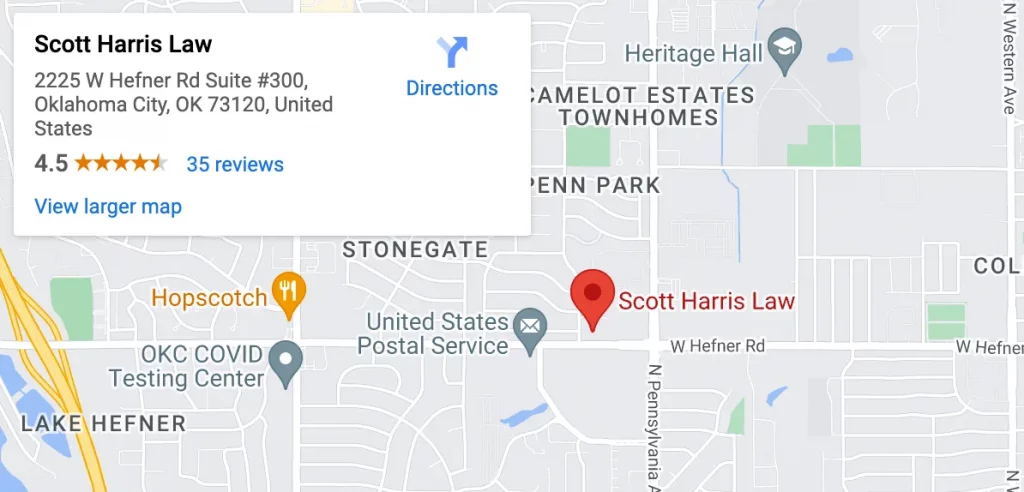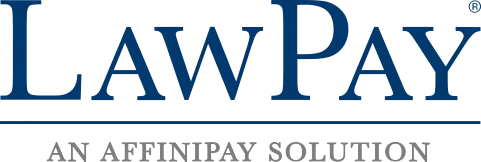Bankruptcy Might Be The Key To Overwhelming Medical Debt
Do you feel like you are getting buried in a mountain of medical debt? You are not alone. Countless individuals in Oklahoma face the harsh reality of soaring medical bills.
That leads to anxiety, hardship, and even thoughts of bankruptcy. But before you throw in the towel, let’s talk about options. This discussion dives deep into bankruptcy and medical debt relief in Oklahoma.
This isn’t just about finances. It’s about taking back control of your life and reclaiming your future.
Short Summary:
- Medical bankruptcy refers to filing for bankruptcy to discharge unmanageable medical debt. It offers a fresh start.
- Medical debt impacts well-being beyond financial strain. It creates stress and hinders economic growth.
- There are two bankruptcy options for medical debt. Chapter 7 eliminates medical debt. Chapter 13 restructures it into a repayment plan.
- Non-profits like OK Health Care Foundation offer financial aid and education in Oklahoma.
- Assess eligibility, debt type, and income-to-liability ratio when deciding on bankruptcy.
Navigating medical debt can feel like a suffocating maze. But escape is possible. Check your situation first and explore Oklahoma’s bankruptcy options and alternatives. Then, carve a path toward financial freedom and reclaim your well-being.
What Does Bankruptcy Mean?
Bankruptcy is a legal process to provide financial relief for individuals or businesses facing overwhelming debt. When someone declares bankruptcy, they are stating their inability to repay their debts within the given timeframe.
The primary goal of bankruptcy is to offer a fresh start by eliminating certain debts or developing a manageable repayment plan.
Remember, bankruptcy is a serious financial decision. It has long-term consequences on one’s credit history. But it can be a crucial tool for those in dire financial straits. Bankruptcy offers a chance to rebuild their financial lives. They do it under the protection and guidance of the legal system.
What is Medical Bankruptcy?
“Medical bankruptcy” isn’t a legal term itself. It is the act of filing for bankruptcy when overwhelming medical debt is the primary driver. In other words, it’s using the legal process of bankruptcy to discharge medical bills you can’t afford to pay.
What is Medical Debt?
Medical debt is a heavy burden from unexpected illness or injury. Unlike the planned choices of credit card debt or loans, medical bills can arise at a fast pace. That leaves individuals with limited options and a mounting financial strain. This pressure amplifies when inadequate insurance coverage or high-cost procedures come into play. That turns healthcare into a potential financial crippling agent.
Uninsured or underinsured patients face the brunt of uncovered costs. Yet deductibles and copays chip away at even the most comprehensive plans. Long-term care needs and unexpected medical emergencies can further exacerbate the issue. This leaves families struggling to focus on medical care while facing the threat of accumulating debt.
One must understand the unique nature and impact of medical debt. That will pave the way for finding solutions and advocating for a more affordable healthcare landscape.
Which Bankruptcy Type is Appropriate for Medical Debt Relief?
The right bankruptcy option to ease medical debt weight depends on individual circumstances. Two primary options are available:
- Chapter 7 Bankruptcy:
- Objective: Chapter 7 bankruptcy aims to discharge various unsecured debts, including medical bills. This bankruptcy chapter suits individuals with constrained income and resources.
- Process: Non-exempt assets may be liquidated to repay creditors in this bankruptcy type. Most unsecured debts, such as medical bills, can be eliminated.
- Outcome: Successful completion leads to a clean slate, freeing the individual from the burden of medical debt.
- Chapter 13 Bankruptcy:
- Objective: Chapter 13 bankruptcy focuses on restructuring debt. It aims to create a manageable repayment plan lasting three to five years.
- Process: Individuals with a regular income develop a structured plan to repay a part or all their debts, including medical bills, over the designated period.
- Outcome: Upon completing the repayment plan, the remaining unsecured debt, including medical bills, may be discharged. That provides a viable alternative for those with a steady income.
The choice between Chapter 7 and Chapter 13 depends on income, assets, and the desire to keep property.
What are the Other Options for Handling Medical Debt in Oklahoma?
Individuals in Oklahoma facing medical debt have several options for handling their financial situation. Here are some alternatives to consider:
Non-Profit Organizations Providing Aid
Non-profit organizations and the government offer support services in Oklahoma for people struggling with medical debt. A great example is The Oklahoma Health Care Foundation. The non-profit entity offers financial assistance programs. It includes grants and low-interest loans. The programs help individuals settle their medical bills.
The foundation also empowers individuals with educational resources. The resources include workshops, webinars, and online courses. These cover topics such as negotiating medical bills and understanding insurance policies.
Community-based organizations, like the Oklahoma Community Assistance Network, play a vital role too. They offer financial counseling and debt management programs. They also have support groups where individuals can share experiences and find solace in shared struggles.
Government Programs and Support
The Oklahoma state government has implemented various programs through the Oklahoma Department of Human Services. SoonerCare, for instance, provides health insurance coverage to eligible individuals and families.
Further collaboration between the state government and local healthcare providers has led to charity care programs. They offer free or reduced-cost medical services to uninsured individuals. They also help those facing financial hardship.
Health Savings Account (HSA) or Flexible Spending Account (FSA)
HSA and FSA are tax-advantaged accounts to help individuals manage medical expenses. HSA eligibility requires enrollment in a High Deductible Health Plan (HDHP), with contributions being tax-deductible, subject to annual limits. Individuals own HSAs. The funds roll over from year to year, allowing for potential investment. Withdrawals from HSAs for qualified medical expenses are tax-free.
On the other hand, FSAs are accessible through employer-sponsored plans. Eligibility is not tied to a specific health insurance plan. Contributions to FSAs are made on a pre-tax basis, reducing taxable income.
However, employers own FSAs. Funds may not roll over at the end of the plan year, though there might be a carryover limit or grace period. Withdrawals from FSAs for qualified medical expenses are also tax-free.
While both accounts serve to alleviate medical costs, understanding their unique features is crucial in choosing the one that aligns best with individual needs and circumstances.
Is Bankruptcy the Right Choice for Me?
Bankruptcy is a viable solution, but it may not suit everyone. You should determine eligibility for a specific type of bankruptcy first. Individuals must meet an income cap set by the means test to qualify for Chapter 7. This test establishes an income threshold based on family size. Exceeding this limit may lead to considering Chapter 13 bankruptcy.
Also, check the nature of your debt. Consider the relationship between your income and liabilities. Bankruptcy may not be the best option for you if your income is high and your debt is manageable.
Call Our Oklahoma Bankruptcy Attorneys Now!
Understanding bankruptcy and medical debt relief in Oklahoma is crucial. More so for individuals facing financial challenges due to healthcare expenses. The decision depends on various factors unique to each situation. Consider Chapter 7 for complete discharge or Chapter 13 for a structured repayment plan.
Navigating bankruptcy law can be intricate, and seeking legal guidance is important. Scott Harris Law, PLLC, is ready to help you understand your options. We will also guide you in taking informed steps toward financial relief.
Our bankruptcy legal team is committed to providing tailored solutions. We invite you to reach out for a free consultation. Take the first step toward regaining control of your financial well-being. Contact us today!




